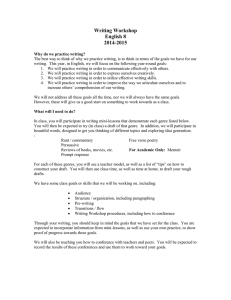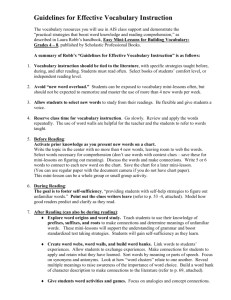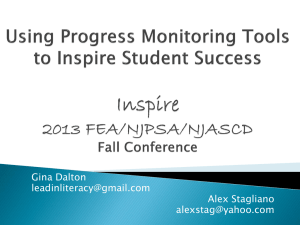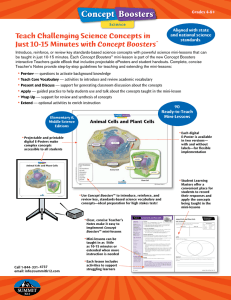The Writing Process
advertisement
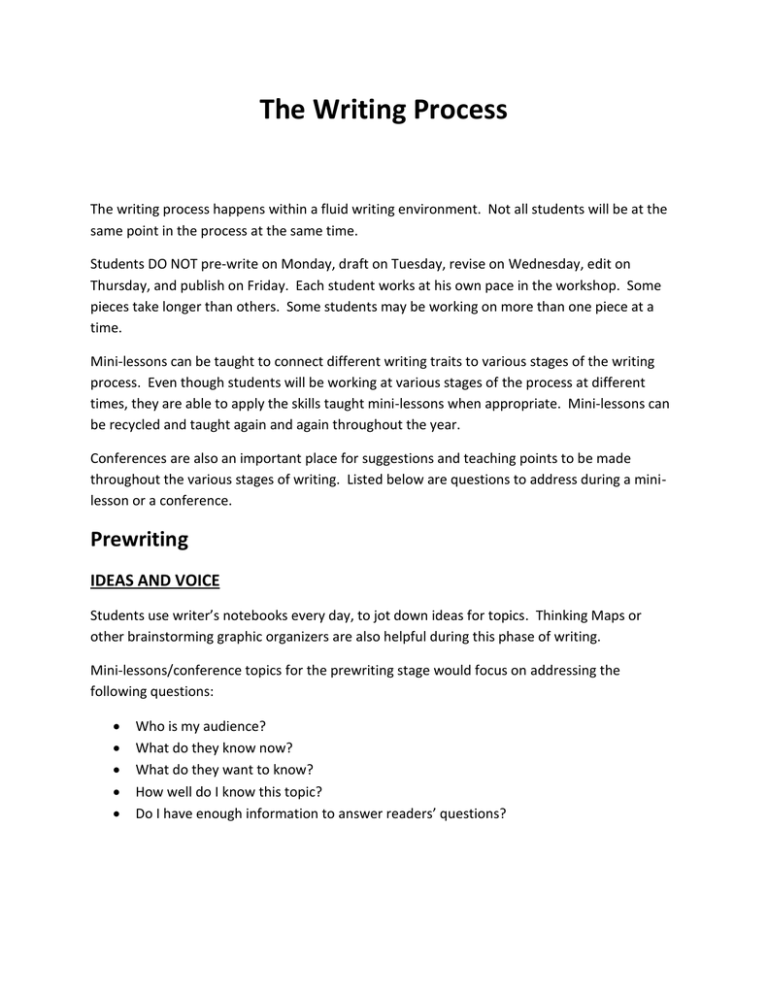
The Writing Process The writing process happens within a fluid writing environment. Not all students will be at the same point in the process at the same time. Students DO NOT pre-write on Monday, draft on Tuesday, revise on Wednesday, edit on Thursday, and publish on Friday. Each student works at his own pace in the workshop. Some pieces take longer than others. Some students may be working on more than one piece at a time. Mini-lessons can be taught to connect different writing traits to various stages of the writing process. Even though students will be working at various stages of the process at different times, they are able to apply the skills taught mini-lessons when appropriate. Mini-lessons can be recycled and taught again and again throughout the year. Conferences are also an important place for suggestions and teaching points to be made throughout the various stages of writing. Listed below are questions to address during a minilesson or a conference. Prewriting IDEAS AND VOICE Students use writer’s notebooks every day, to jot down ideas for topics. Thinking Maps or other brainstorming graphic organizers are also helpful during this phase of writing. Mini-lessons/conference topics for the prewriting stage would focus on addressing the following questions: Who is my audience? What do they know now? What do they want to know? How well do I know this topic? Do I have enough information to answer readers’ questions? Drafting IDEAS AND ORGANIZATION Graphic organizers are good to use at this stage, or templates that support students with organization. Mini-lessons/conference topics for the drafting stage would focus on addressing the following questions: What form should this take (report, letter, brochure, story, poem, etc.)? What’s an organizational pattern that makes sense? Time? Space? Compare/Contrast? Main point and support? List of key questions with answers? What new details can I include? Where do I begin? Where do I go next? How do I know when to stop? Revision IDEAS, ORGANIZATION, AND VOICE Students will need to get used to the idea that they will be spending a lot of time on just one piece of writing. Mini-lessons/conference topics for the revision stage would focus on addressing the following questions: What are the missing pieces? What are the unanswered questions? Does the organizational pattern work? Did I waste time telling readers things they know already? Is my opening a grabber? Is my MAIN message clear? Is this the right tone/voice for this audience and topic? Does the language communicate? Did I end in a good spot? Did I end with a thought, surprise, or question that will make my readers think? Editing/Publishing Word Choice, Terminology, Sentence Fluency, Conventions, and Presentation During the editing phase, students are encouraged to look more closely at their writing. Mini-lessons/conference topics for the revision stage would focus on addressing the following questions: Is this text as error-free as I can make it? Is it readable? Can I breeze right through it? Does the language communicate with this audience? Do the sentences show enough variety to keep a reader awake? Are sentences in informational or business writing concise and to the point? Did I read it both silently and aloud? Did I seek the editorial help I needed? Is this the right form (poster, report, story) for this information? Did I use page layout in a way that will catch the reader’s eye?
